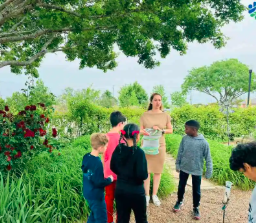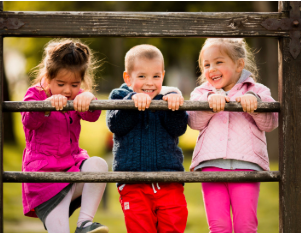Nature has always been one of the best teachers. For young children, outdoor environments provide rich, hands-on learning experiences that help shape their understanding of the world. Nature-based learning is more than just playtime outside—it’s a powerful educational approach that nurtures cognitive, emotional, and physical development.
Encouraging Curiosity and Exploration
When children are immersed in natural surroundings, they naturally become curious. Whether it’s discovering insects under a log or watching clouds move across the sky, these experiences stimulate questions and encourage observational skills. Nature prompts children to wonder, investigate, and make connections—core elements of early learning.
Supporting Cognitive Development
Studies show that time spent in nature can improve focus, memory, and problem-solving skills in young learners. Activities such as building with sticks, measuring puddles, or sorting leaves by color and shape all introduce early concepts of science and math in a playful, engaging way. These tasks require thinking, planning, and decision-making, which strengthen brain development.
Boosting Creativity and Imagination
Natural settings are open-ended and full of possibilities. A stick can be a magic wand, a bridge, or a tool. Without the structure of manufactured toys, children invent their own games and stories, enhancing their creativity and imaginative play. This kind of freedom is vital for personal expression and flexible thinking.
Promoting Physical Health and Coordination
Running on uneven ground, climbing logs, and balancing on rocks help children build strength, coordination, and confidence. These activities are not only fun but also essential for gross motor development. Regular movement outdoors also supports healthy habits and reduces sedentary screen time.
Fostering Emotional Well-Being
Time in nature has a calming effect on young children. It helps lower stress, reduce anxiety, and build emotional resilience. Children who spend time outside often develop a sense of peace and appreciation for their environment, contributing to a positive and grounded mindset.
Building Social Skills and Teamwork
Nature-based activities often involve group exploration, encouraging cooperation and communication. Whether working together to build a fort or sharing discoveries on a nature walk, children practice listening, taking turns, and solving problems as a team.
Connecting to the Environment
Introducing children to the natural world early in life helps build a lifelong respect for the environment. They learn the importance of caring for plants, animals, and the planet. This foundation supports values like responsibility, empathy, and sustainability.
Conclusion
Nature-based learning is a valuable and enriching approach that enhances multiple areas of development in young children. By giving them the freedom to explore, create, and learn outdoors, we support not only their academic growth but also their overall well-being. Whether it’s in a park, a forest, or a school garden, nature offers lessons that last a lifetime.


